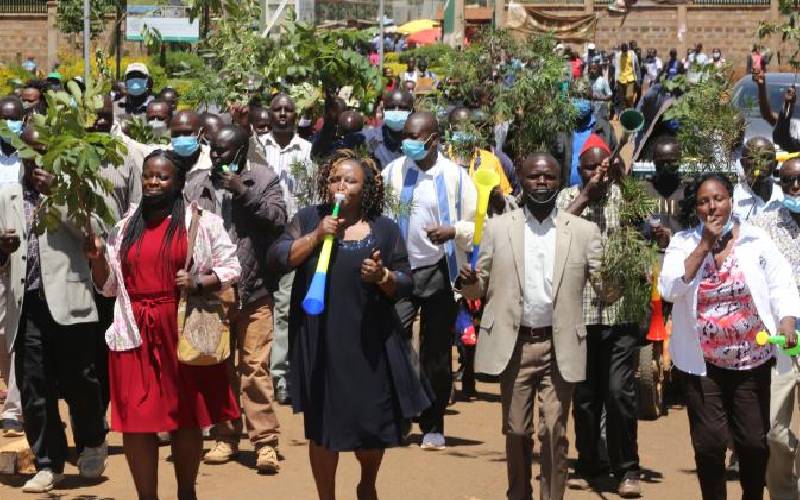×
The Standard e-Paper
Smart Minds Choose Us

The teaching and non-teaching staff of Moi University demonstrate along the streets in the Campus in Eldoret. [Peter Ochieng, Standard]
Moi University has been facing a barrage of audit queries, according to reports by Auditor General Nancy Gathungu.